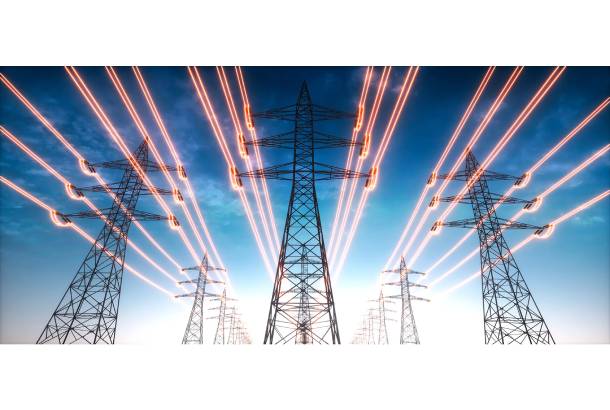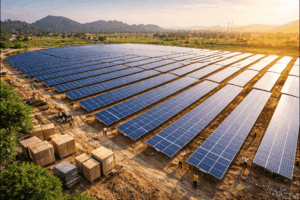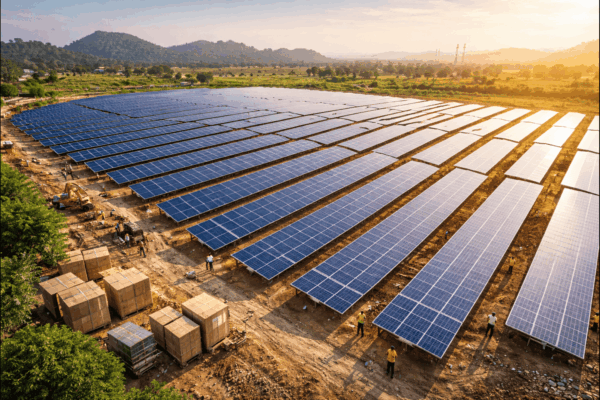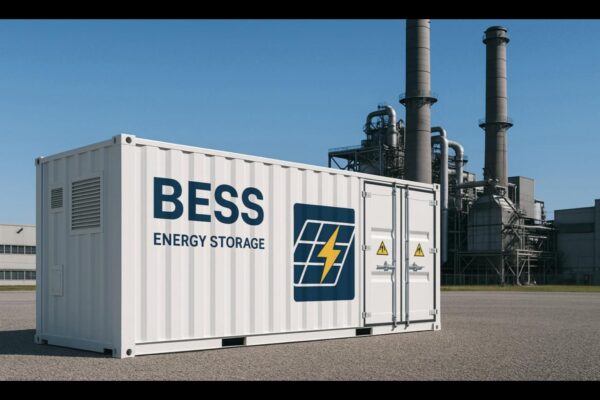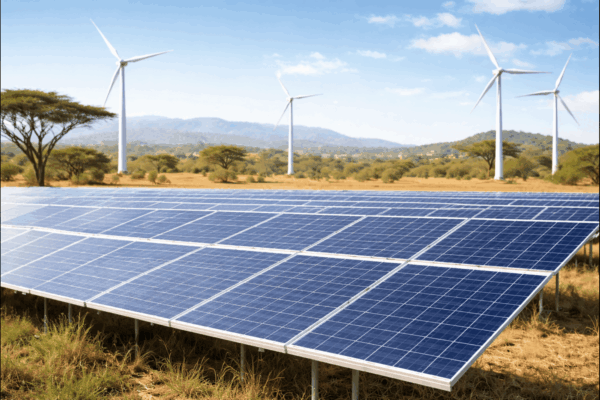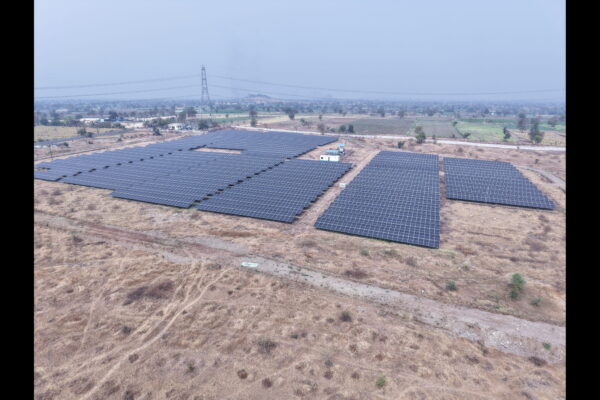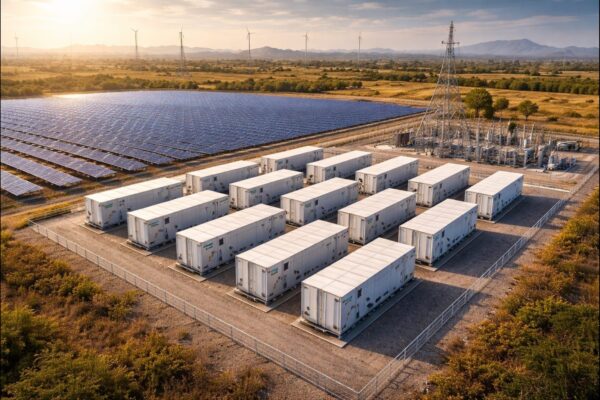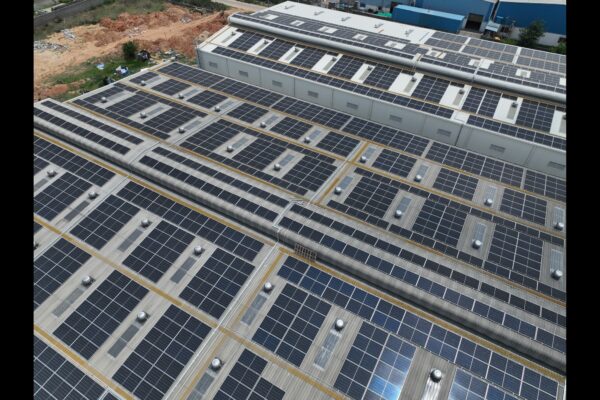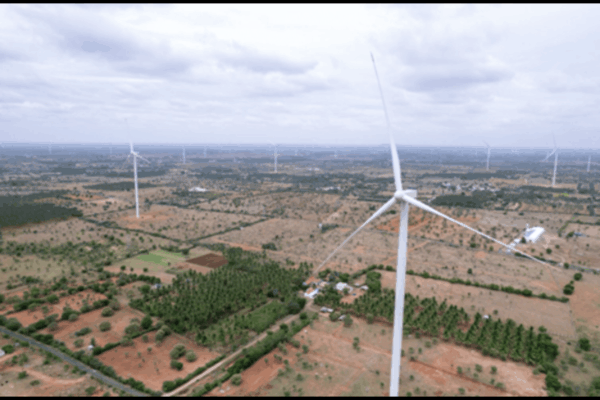India, Powering the Global EPC Market
by Rohin Dhar, Head of International EPC, Bajel Projects
The global power transmission market has witnessed rapid expansion in recent years, driven by increasing energy demand, the need for reliable power distribution networks, and the global transition toward renewable energy sources. Critical factors such as grid modernization, cross-border electricity trade, and the integration of variable renewable energy sources are reshaping the sector’s landscape.
As of 2023, the global power transmission and distribution market was valued at approximately USD 330.29 billion and is projected to reach USD 432.23 billion by 2030. India plays a significant role in this evolving scenario, having made substantial investments in power connectivity solutions, smart grid technologies, and ultra-high-voltage (UHV) infrastructure. The country’s expertise in these domains is now being leveraged beyond its borders, particularly in the Middle East and Africa.
Strategic role in global expansion
Indian Engineering, Procurement, and Construction (EPC) firms are emerging as key enablers of power infrastructure development across these regions. The Middle East and Africa are undergoing major infrastructure transformations, fueled by economic diversification strategies, urban expansion, and renewable energy integration. Indian EPC firms, recognized for their robust engineering capabilities and consistent project execution, are ideally positioned to support these transitions.
Surge in Middle East project engagement
There has been a notable increase in the scale and frequency of power transmission projects awarded to Indian EPC firms in the Middle East. The region is seeing significant developments in large-capacity overhead transmission lines—particularly 380kV lines spanning over 130 route kilometers—essential for powering new townships and industrial zones. Additionally, there is growing demand for advanced infrastructure such as 132/11kV and 132kV Gas Insulated Substations (GIS), which are central to creating modern, resilient power networks.
These projects span countries like Saudi Arabia, the UAE, and Qatar, and are often executed under extreme climatic and logistical conditions. Indian firms have repeatedly demonstrated the ability to deliver in these environments, contributing to a wide spectrum of energy infrastructure, including oil and gas pipeline projects and the supply of structural components such as steel poles.
Alignment with Regional Development Goals
The involvement of Indian EPC firms aligns closely with the strategic objectives of Middle Eastern nations:
- Economic Diversification: By enabling the development of smart cities, industrial zones, and non-oil economic clusters, EPC projects are supporting long-term national visions aimed at reducing hydrocarbon dependency.
- Renewable Integration: Many transmission and substation systems are being designed to accommodate power from solar and wind farms, reinforcing clean energy goals.
- Grid Resilience: Ongoing grid upgrades are enhancing reliability and efficiency, ensuring that networks can support expanding urban populations and industrial activity.
India’s Expanding Influence in Africa’s Power Sector
Simultaneously, Indian EPC firms are deepening their footprint across Africa, in step with a growing bilateral relationship. With trade between India and Africa reaching nearly USD 100 billion in FY 2022–23, the collaboration extends notably into infrastructure and energy.
Africa’s rapid urbanization and industrialization have heightened the need for modern, high-capacity transmission networks. Indian exports to the continent include significant volumes of electrical equipment, which complement infrastructure development efforts. Drawing on experience from diverse geographies, Indian EPCs are well-equipped to navigate the logistical and environmental challenges unique to African terrains.
Moreover, these projects are crucial for improving electricity access, especially in rural and underserved regions. By building the infrastructure necessary for wider grid connectivity, Indian firms are helping Africa meet its energy inclusion and development goals. With a growing focus on clean energy, Indian expertise is also proving vital in building transmission systems that integrate intermittent renewable sources, such as solar and wind, into national grids.
Investment Outlook and Strategic Positioning
India’s commitment to the African continent is underscored by its planned increase in investments, projected to reach USD 150 billion by 2030. This long-term vision places power transmission at the center of infrastructure-led growth. Indian EPC firms are expected to play an instrumental role in building the resilient and sustainable energy systems required to power the continent’s future.
India’s geographic proximity, coupled with strong diplomatic and economic ties, enhances its strategic positioning. The country’s ability to deliver cost-effective, high-quality engineering solutions makes it a preferred infrastructure partner across the Middle East and Africa.
Emergence of New Players and Technological Sophistication
Alongside established EPC conglomerates, a new cohort of agile Indian EPC companies is seeking global exposure. These emerging players, equipped with niche expertise and flexible operating models, are capitalizing on specialized market opportunities. By prioritizing innovation, digitalization, and streamlined project management, they are introducing new efficiencies and value in international markets.
This broader industry engagement has facilitated smoother market entry for other global stakeholders. Indian firms are contributing not only through execution but also by fostering international collaboration, knowledge transfer, and shared resource models—laying the foundation for cost-effective innovation and inclusive value creation.
India’s Unique Value Proposition in Global EPC
India’s impact on global power transmission is deeply rooted in its comprehensive EPC ecosystem. From manufacturing transmission equipment to constructing substations and high-voltage lines, Indian firms offer end-to-end infrastructure solutions. Their experience with the complexities of India's own vast power grid provides practical insights applicable to large-scale international projects.
However, what truly sets India apart is its highly skilled talent pool. The country’s engineers, project managers, and technicians bring unmatched expertise and execution capability to the table. Their proficiency in handling complex, cross-border projects makes Indian EPC firms reliable partners in the effort to create a more interconnected, sustainable global power landscape.

